Hormones run the show—whether you’re aware of it or not. They control your energy, mood, metabolism, sleep, skin, libido, and even your ability to lose weight or handle stress. But what we don’t talk about enough is how everyday foods—yes, even the ones marketed as “healthy”—can seriously throw your hormonal balance out of whack.
From fake health snacks to pantry staples, some foods hijack your endocrine system and mess with your body’s most delicate feedback loops. Here are 15 sneaky offenders that could be silently disrupting your hormones—and what you can do instead to support balance and feel like yourself again.
1. Soy-Based Processed Foods

While whole soy foods like edamame and tempeh provide health benefits, ultra-processed soy products—such as soy protein isolates found in snack bars and diet shakes—can mimic estrogen in the body. This estrogen-like effect may contribute to hormonal imbalances, especially for individuals who are already sensitive. Excessive consumption of processed soy may interfere with thyroid function and worsen symptoms related to PMS or PCOS.
According to Harvard’s Nutrition Source, soy contains isoflavones that can bind to estrogen receptors and exert weak estrogenic or anti-estrogenic effects depending on factors like the type of soy, hormonal status, and life stage. Moderate intake of whole or minimally processed soy is generally safe, but if you notice hormonal symptoms worsening, consider reducing processed soy and choosing organic, non-GMO, less processed options to support better hormonal balance.
2. Refined Sugar
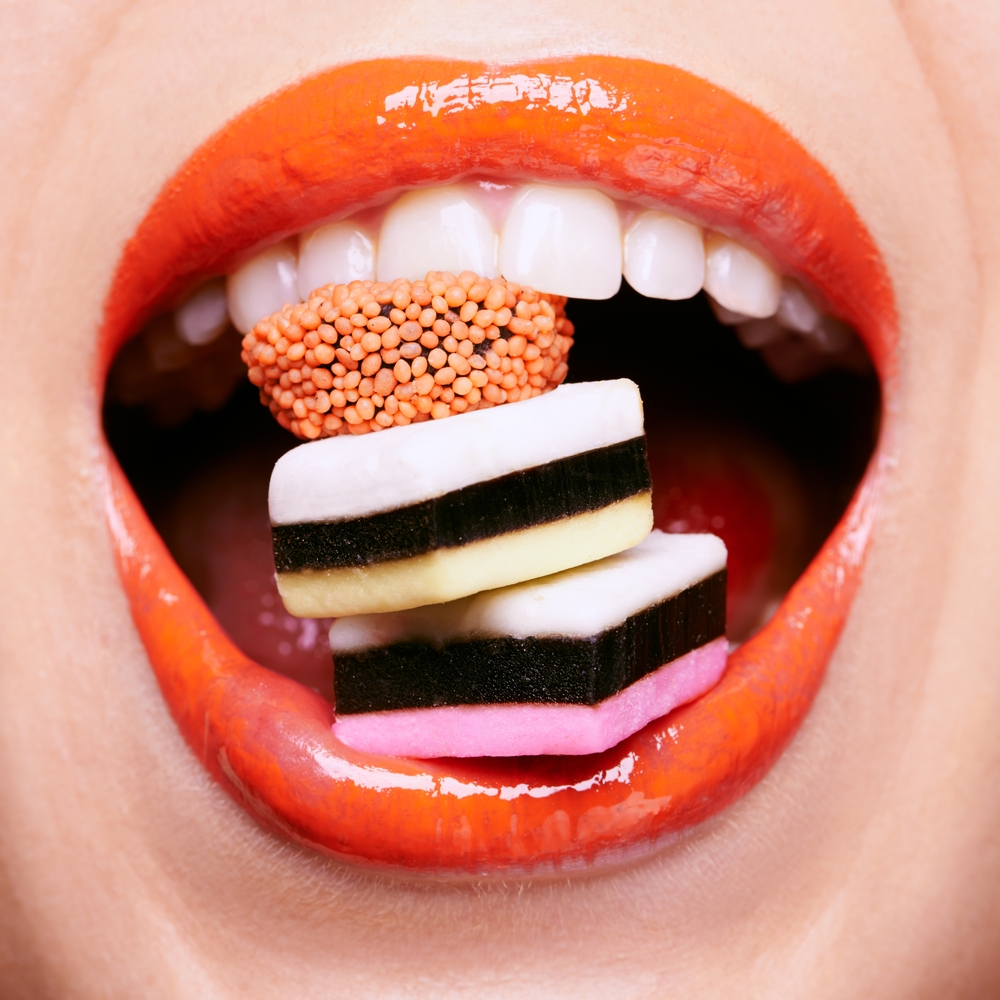
Sugar is one of the fastest ways to send your insulin and cortisol levels on a rollercoaster. When you spike your blood sugar (think: candy, soda, white bread), your body scrambles to lower it by pumping out insulin—and when it crashes, it overcompensates with more cortisol. The result? Hormonal chaos can lead to fatigue, mood swings, acne, and weight gain.
According to Women’s Health Network, sugar and refined carbohydrates are frequently at the root of PMS and menopause symptoms such as fatigue, cravings, and mood swings. Sugar disrupts insulin, which is closely connected to other hormones like estrogen and testosterone. Excess sugar also increases estrogen and testosterone levels, which can worsen symptoms and contribute to hormonal imbalances, including those seen in PCOS and insulin resistance.
3. Vegetable Oils (Like Canola Or Soybean)

Highly refined vegetable oils are in everything—from salad dressings to crackers—and they’re packed with omega-6 fatty acids. While omega-6s aren’t inherently bad, we consume far too many of them compared to anti-inflammatory omega-3s. This imbalance contributes to chronic inflammation, which disrupts hormonal pathways and messes with cortisol and estrogen levels. Many of these oils are also chemically processed and oxidize easily, creating free radicals that damage cells. Swap them out for cold-pressed oils like olive, avocado, or coconut for a hormone-friendlier alternative.
According to Amchara, overconsumption of refined oils and sugars can destabilize hormone production, affect metabolism, and contribute to poor energy and weight control, all of which are closely tied to hormonal balance.
4. Non-Organic Dairy

It’s easy to get caught up in the hustle and let work consume all your time and energy, but this often leads to burnout. While ambition and a strong work ethic are admirable qualities, they should never come at the expense of your mental and physical well-being. Taking time for self-care is not a luxury—it’s essential for maintaining long-term happiness and productivity. Your mind and body are your most valuable tools, and protecting them ensures you can keep moving forward without burning out.
According to PMC, working more than 40 hours per week is linked to poorer mental health, with longer hours increasing the risk significantly. People working 55 or more hours weekly have a 60% higher chance of experiencing mental health problems compared to those working standard hours. This relationship is partly due to work-life imbalance, which accounts for a large portion of the negative effects on mental health. Looking back, you’ll regret prioritizing work over your peace. Protect your energy now to stay healthier, happier, and more capable of achieving what truly matters.
5. Artificial Sweeteners
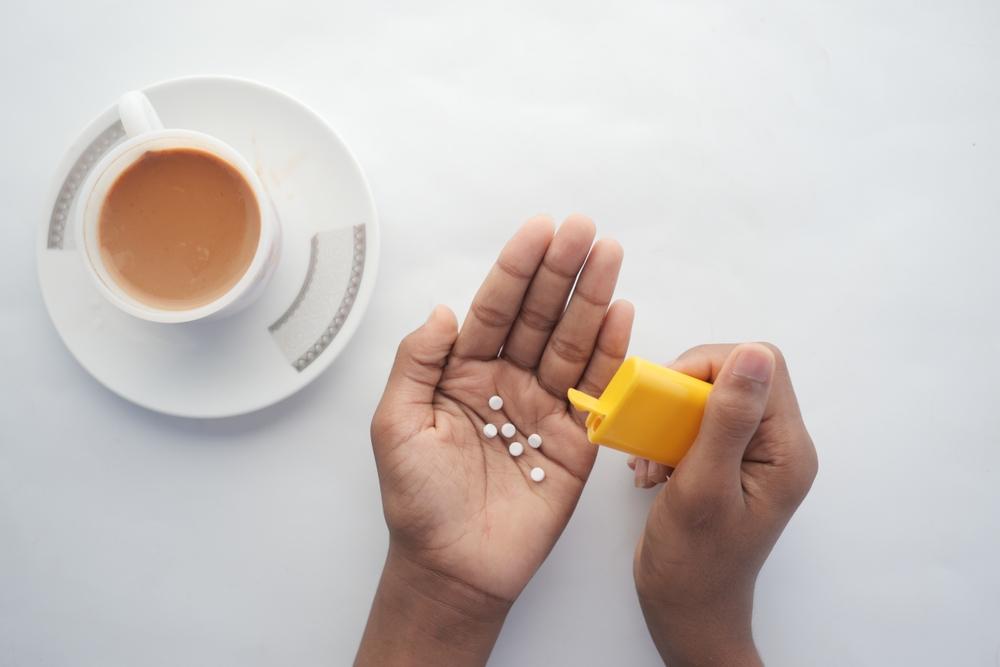
Aspartame, sucralose, and other artificial sweeteners may seem like a healthy alternative to sugar, but they can confuse your body’s natural insulin response. According to NIDDK, these sweeteners can activate sweet taste receptors and trigger insulin release even without actual sugar intake, potentially disrupting your metabolism. This confusion can lead to increased cravings and dysregulation of appetite hormones like leptin and ghrelin, making it harder to control hunger and weight.
Moreover, artificial sweeteners may negatively affect your gut microbiome, which plays a key role in hormone regulation. Research highlighted by Nutritionist Resource shows that altering gut bacteria through these additives can contribute to hormonal imbalances and metabolic issues. While the “sugar-free” label sounds appealing, it doesn’t mean these products are without consequences. For a sweeter fix without the hormonal disruption, consider small amounts of raw honey, stevia, or monk fruit instead.
6. Alcohol

Alcohol messes with nearly every hormone in your body, especially estrogen, testosterone, and cortisol. It disrupts liver function (which is essential for hormone detox), raises cortisol, and throws off blood sugar regulation. For women, even moderate drinking has been linked to higher estrogen levels and increased PMS symptoms.
For men, it can lower testosterone and contribute to fatigue, mood swings, and weight gain. You don’t need to swear it off forever, but if your hormones are feeling out of control, consider cutting back or taking a break to reset.
7. Caffeine Overload

Caffeine isn’t the enemy, but too much can be. Over-relying on coffee, especially when you’re stressed or sleep-deprived, pushes your adrenals to pump out cortisol and adrenaline. Over time, this can lead to adrenal fatigue, irregular cycles, and energy crashes.
Try cutting back to one quality cup per day or switching to matcha, which provides a more stable energy boost thanks to its calming amino acid, L-theanine. Your hormones—and your nervous system—will thank you.
8. Gluten (For Some People)

Gluten can trigger inflammation and autoimmune reactions in sensitive individuals, especially those with thyroid issues like Hashimoto’s. Even in people without celiac disease, gluten may increase intestinal permeability (“leaky gut”), which can lead to immune dysregulation and hormonal imbalance.
If you’re struggling with brain fog, mood swings, or irregular cycles, it’s worth trying a gluten-free period to see how your body responds. You might notice more than just digestive changes.
9. Plastic-Packaged Foods

It’s not just what you eat—it’s what your food touches. Plastic containers, especially when heated, can leach hormone-disrupting chemicals like BPA and phthalates into your food. These chemicals mimic estrogen and are linked to everything from infertility to early puberty and metabolic disorders.
Store food in glass containers, never microwave plastic, and avoid drinking from plastic bottles that have been sitting in heat. Small swaps can lead to big changes in your body’s hormonal load.
10. Fast Food

Fast food is the perfect storm of hormone-disrupting ingredients: low-quality meat, inflammatory oils, refined carbohydrates, sugar, and sodium overload. Many chains also use additives and preservatives that can affect endocrine function. Even the packaging may contain hormone-disrupting compounds.
It’s not just an occasional cheat meal that’s the problem—it’s the cumulative effect. Prioritize whole, unprocessed meals as often as possible to give your body a break from the hormonal onslaught.
11. Flavored Yogurts And Smoothies

These sound healthy, but many are loaded with hidden sugars and stabilizers that spike insulin and mess with appetite-regulating hormones. Plus, low-fat varieties often remove the satiating fats your hormones need to function properly.
Read your labels—and aim for full-fat, unsweetened versions paired with real fruit or nuts. Your hormones thrive on fat and fiber, not syrups and additives.
12. Fake Meat Products

Plant-based can be great, but not when it comes to ultra-processed meat substitutes. Many are made with soy protein isolates, seed oils, artificial flavorings, and preservatives that can mess with your gut and hormonal balance. If you can’t pronounce the ingredients, your hormones probably can’t process them well either.
Stick with whole-food vegetarian proteins like lentils, beans, or tofu (in moderation). Going plant-based should support your hormones, not throw them off.
13. Farmed Fish
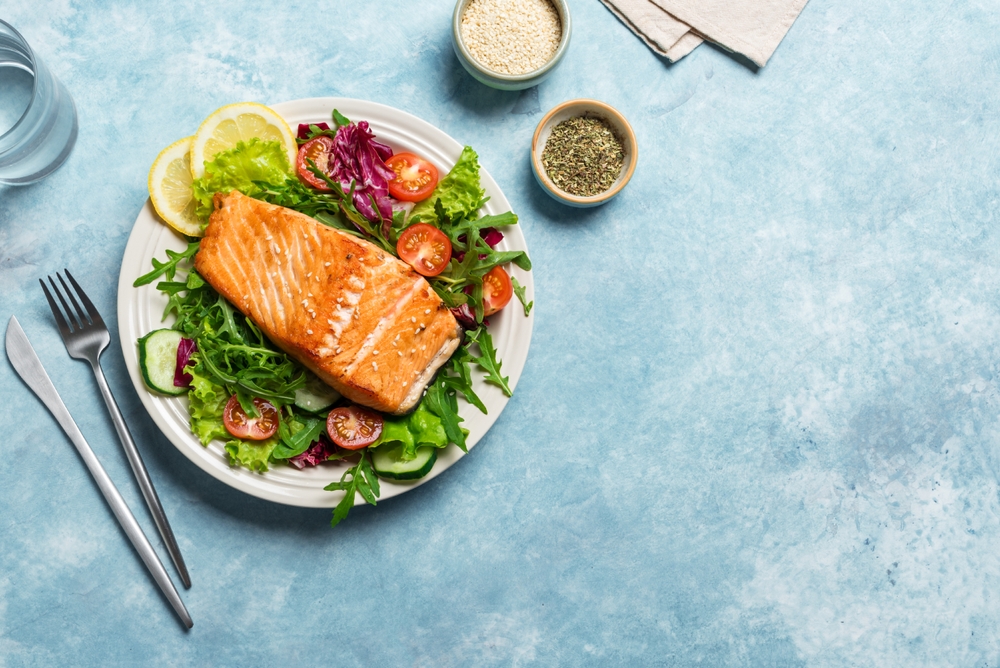
Not all fish are created equal. Farmed fish are often exposed to antibiotics, chemicals, and unnatural feed that can contain endocrine-disrupting compounds. These toxins can accumulate in the fat and make their way into your body.
Wild-caught fatty fish like salmon, sardines, or mackerel are a better choice for omega-3s without the chemical baggage. Supporting hormone health starts with choosing cleaner protein sources.
14. Breakfast Cereals
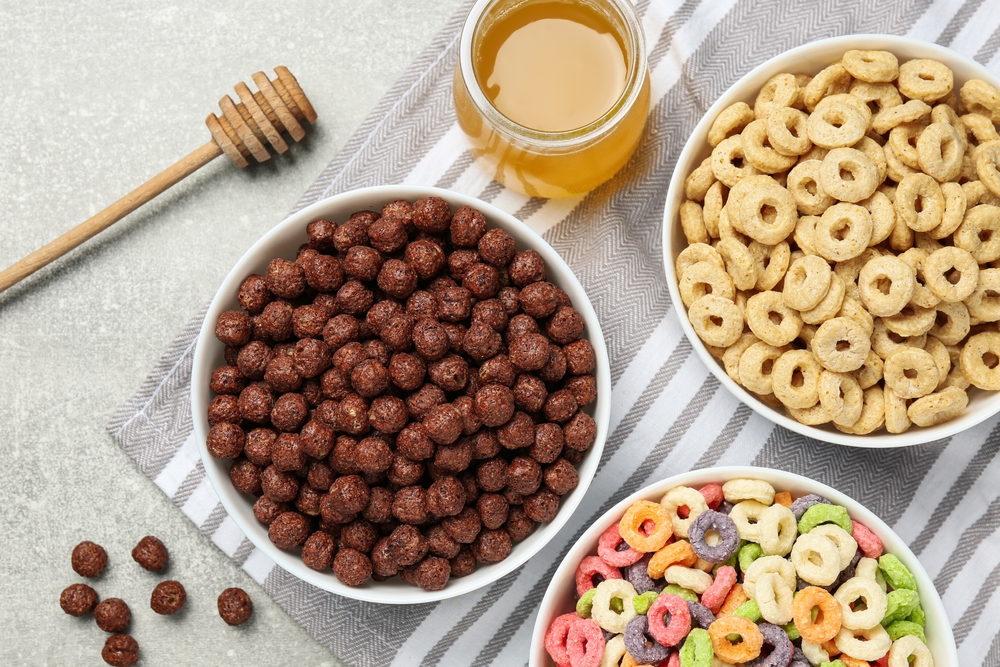
Many breakfast cereals—even the “healthy” ones—are full of refined grains, sugar, and synthetic vitamins. They spike blood sugar, disrupt insulin balance, and leave you crashing by mid-morning. That sugar crash? It’s not just fatigue—it’s hormonal disruption in action.
Swap your cereal for a protein- and fat-rich breakfast (think eggs, avocado, or Greek yogurt with nuts). You’ll stay fuller longer—and your hormones will stay a lot more stable.
15. Energy Bars and Protein Shakes
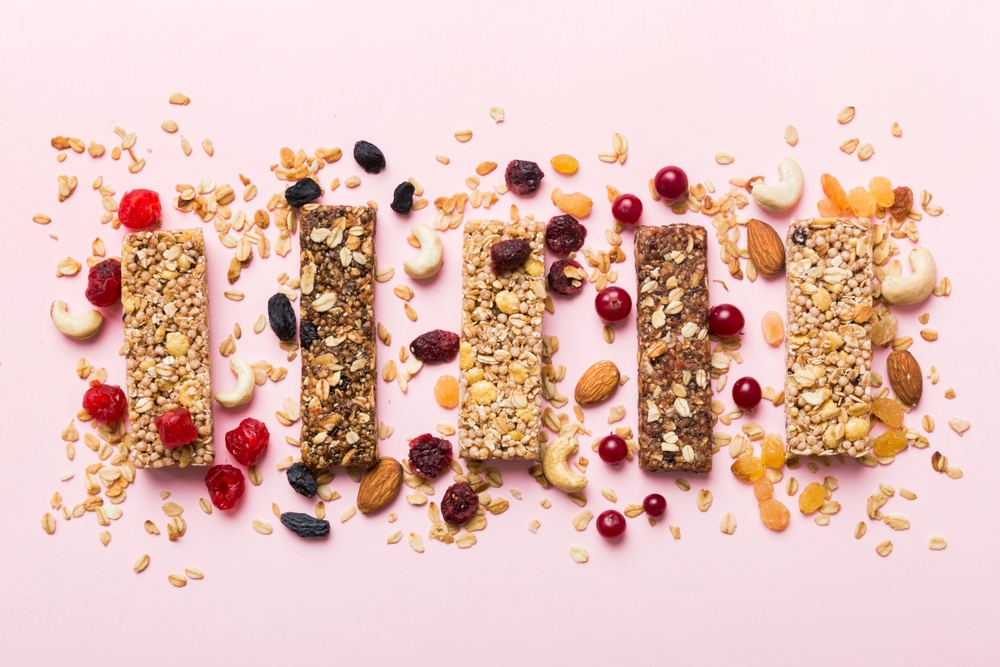
Most commercial bars and shakes are filled with sugar alcohols, additives, low-quality protein, and synthetic sweeteners. These can inflame the gut, spike insulin, and interfere with cortisol balance, especially if you rely on them as meal replacements.
If you’re going to use a bar or shake, read the label carefully. Choose options with whole ingredients, low sugar, and no artificial junk. Or better yet, eat real food when possible—your hormones prefer it that way.

Abisola is a communication specialist with a background in language studies and project management. She believes in the power of words to effectively connect with her audience and address their needs. With her strong foundation in both language and project management, she crafts messages that are not only clear and engaging but also aligned with strategic goals. Whether through content creation, storytelling, or communication planning, Abisola uses her expertise to ensure that her messages resonate and deliver lasting value to her audience.


